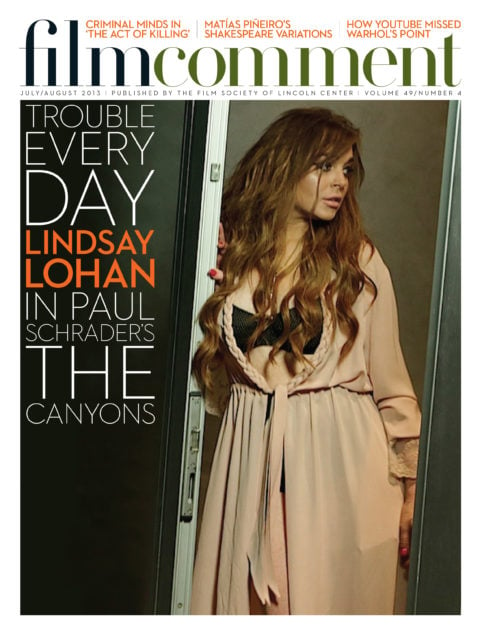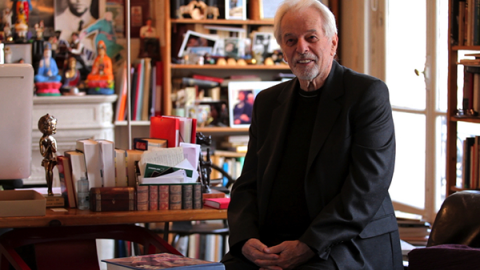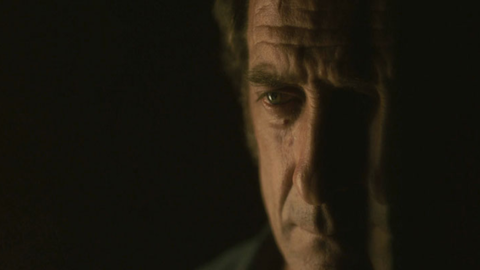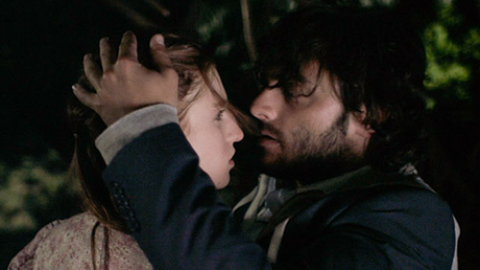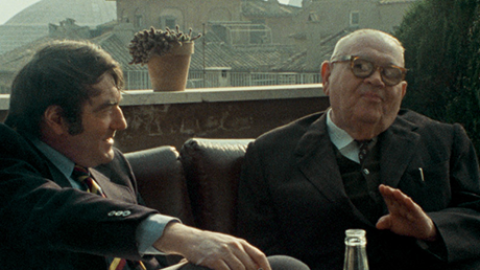One of the things that distinguishes Cannes among film festivals is its security apparatus. It’s simply nonpareil. To enter the Palais or its two main red-carpet venues, first you wait in a long line—this year, at least for the first half, in the pouring rain. Then you run a gauntlet of impeccably civil and mostly good-humored uniformed men who check your press credentials before letting you through—and God help you if you’ve got the wrong-colored pass for the line you’ve been standing in. After that, uniformed women search your bags for forbidden items (in recent years food and drink have become as verboten as plastic explosives), and still more uniformed men give you a (very cursory) once-over with an electronic wand for concealed weapons. The only thing missing are sniffer dogs and X-ray machines—but I’m sure it’s just a matter of time before they’re introduced. Incidentally, the number of terrorist attacks on the festival in the 16 years I’ve been attending? Zero (although someone might have brandished a pistol at Christoph Waltz this year). Still, let’s not take any chances. The Cannes security staff means business, but in a nonchalant kind of way. Someone once succinctly summed it up for me—as far as Cannes goes, the French are Italians who think they’re Germans. Considerably less nonchalant, if not downright menacing, the cadres of the CRS riot police ominously move into position at night, their vans standing ready at the edges of the Croisette and in the back streets, just in case—you never know, the people who were shut out of the new Serge Bozon film might go on the rampage. Or maybe that’s the ones who saw it.
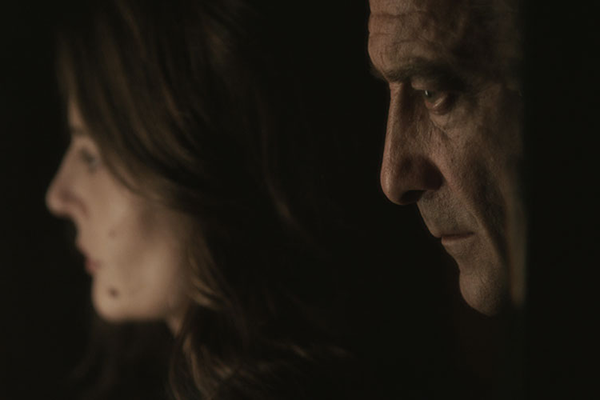
Bastards
Actually, it’s no laughing matter. This year, alongside their riveting coverage of the latest acquisition deals and who ate at what restaurant, the daily trades were filled with reports of apartment and hotel room robberies, jewel heists, muggings, and scams (some unwary industry folk arrived to find that the accommodations they’d booked online didn’t exist). As well as catering to all manner of vice, Cannes has always attracted the criminal element, and I’ve heard tell of epidemics of muggings back in the good old days. To be sure, a number of my colleagues have had their hotel rooms broken into over the years and the publisher of this very magazine was relieved of her iPad by a light-fingered thief last year.
Festival attendees may have comforted themselves with the prospect of escaping from the predators outside the Palais by luxuriating in the glories of cinema. So I suppose it was unfortunate that the festival picked The Bling Ring as the opening film of Un Certain Regard. But that was just the tip of the iceberg. Across all four sections of this edition of Cannes, hit men, pimps, narcotráficos, grifters, petty thieves, and crime-fighting cops turned up on screen in record numbers: crime featured in more than a third of the films on offer this year (34 features out of a total of 84, compared to last year’s 20), so clearly crime is on the rise. (I’m not saying that this was This Year’s Theme, mind you.) It’s been said that festival programmer Thierry Frémaux and his team are striving to acknowledge genre cinema in the festival’s selections, but you might be forgiven for wondering if they’re aware of any other genres.
If Jia Zhang-ke’s A Touch of Sin and Claire Denis’s Bastards represented the best of the films with violence and crime on their minds, Nicolas Winding Refn’s overwrought and pretentious Only God Forgives represented the nadir. Having plundered early Walter Hill for the overrated Drive, Refn now appropriates the stylings of Michael Mann, and unlike God, the Cannes press weren’t in a forgiving mood judging by the booing. I’m not sure what people disliked most—the fetishistic violence, the ponderous at-the-bottom-of-the-ocean pacing, or Kristin Scott Thomas’s horribly misjudged performance as a crime overlord intent on avenging the death of her no-good son. (The closing dedication to Alejandro Jodorowsky added one parting shot of hilarity.)

Heli
The jury, presided over by Steven Spielberg, puzzlingly chose to hand the Best Director prize to Amat Escalante for Heli, which kicked off the Competition with a boot in the face. Another dispatch from the Mexican drug war, this time about noncombatants caught in the crossfire, it pales in comparison to Gerardo Naranjo’s Miss Bala in filmmaking terms but I suppose that it packs a crude punch (body count: 3 + 2 dogs).
Takashi Miike and Johnnie To sporadically make world-class films, and Cannes has belatedly cottoned to them. But Team Frémaux obviously doesn’t know either director’s A material from their B material—To’s phoned-in comedy thriller Blind Detective got a midnight slot, but it’s not my idea of a midnight movie. Miike’s lifeless Hara-Kiri remake made it into the 2011 Competition while his slapdash high-school musical comedy For Love’s Sake found a midnight slot in 2012. He was back in Competition this year with Straw Shield, in which cops transporting a remorseless serial killer of children must contend with fellow cops, yakuza, and regular citizens all vying for a million-yen bounty placed on their prisoner’s head by one victim’s billionaire grandfather. The premise is juicy but the film settles into a tamer version of Clint Eastwood’s The Gauntlet, and it’s clear from the slack handling that Miike isn’t terribly invested in this one.
It goes without saying that Straw Shield wasn’t worthy of the Competition section and was going to win squat. The same held for such obvious second-tier also-rans as Alex van Warmerdam’s Borgman, François Ozon’s instantly dismissed Young & Beautiful, Arnaud des Pallières’ largely ignored Michael Kohlhaas, and of course Refn’s almost universally reviled misfire. Although it had its fans, even the de rigueur Competition entry by Paolo Sorrentino, The Great Beauty, a sprawling, exhausting, overblown redo of La Dolce Vita with Toni Servillo in the Mastroianni role, seemed pretty superfluous. So that makes five or six nice Competition slots that by rights should have belonged to such far superior and more ambitious or risk-taking works: the Denis film, Alain Guiraudie’s Stranger by the Lake, Hany Abu-Assad’s Omar, Rithy Panh’s The Missing Image, Rebecca Zlotowski’s Grand Central, James Franco’s cumulatively convincing As I Lay Dying, and Lav Diaz’s Norte, the End of History, which, with its legible if ultimately skimpy narrative, strong visual style, and (by Diaz standards) terse four-hour running time, seemed to some extent like a bid to come in from the cold.

All Is Lost
If the robustness of the certain Regard lineup cast the Competition in a more unfavorable light than ever before—particularly when you add in J.C. Chandor’s gripping survival thriller All Is Lost and Claude Lanzmann’s monumental Last of the Unjust, two Hors Compétition highlights—it also cratered the unofficial parts of the festival, the Directors’ Fortnight and Critics’ Week, where you can usually count on making a fair number of bona fide discoveries. This year the Quinzaine opened with Ari Folman’s long-awaited follow-up to 2008’s Waltz with Bashir. Alas, The Congress, adapted from a Stanislaw Lem novel, got things off to a bad start: a one-third live-action, two-thirds animated satire, the film takes obsession with celebrity to its logical conclusion as Robin Wright, playing a washed-up version of Robin Wright, sells the rights to a fully digitized simulacrum of herself in perpetuity, allowing her to effectively retire while the studio repurposes her image as they see fit, in endless permutations. Fast-forward 20 years: Wright is transformed into an animated version of herself after entering the Restricted Animated Zone, a Las Vegas-like virtual-reality world populated by celebrity caricatures (Tom Cruise is a set of dazzling teeth). It’s literally Better Living Through Chemistry en masse: a new drug enables regular people to reimagine themselves as their favorite celebrities, leaving behind a grim reality (the future is always grim in movies) for a shared hallucination that’s one long party. The conceit is strained and the visual onslaught is grating and quickly tedious—and Folman doesn’t seem to understand that satire is supposed to make you laugh and think. The Congress does neither.
Maybe it was just an off year but the two sections had little drawing power. No doubt there were gems to be found, but nobody breathed a word about them. Such films are seen to better advantage in Toronto or Rotterdam, where they are no longer overshadowed by the main festival. Last year in Toronto I caught up with two 2012 Quinzaine highlights, Pablo Stoll’s 3 and Sébastien Betbeder’s Nights with Theodore, blissfully unaware that they had already shown in Cannes.
And so it was that one rainy Saturday night I made a beeline to see Betbeder’s new film in a sub-rosa third unofficial festival offshoot, ACID, which is programmed by actual filmmakers. Now entering its 21st year, the Association du Cinéma Indépendant pour sa Diffusion is a Paris-based organization of modest means dedicated to promoting the circulation of below-the-radar micro-budget indie work without distribution and made at the very edges if not completely outside of the French film industry. (As with most initiatives in France, it began by publishing a manifesto, in 1991.) ACID’s earliest editions, consisting of 10 films and ensconced at the Studio 13 theater far from the center of Cannes, featured early work by Robert Guédiguian, Manuel Poirier, Patricia Mazuy, Pascale Ferran, Nicolas Philibert, Philippe Faucon, and of course, Serge Bozon—all of whom have since made their way into the French film establishment. (Over the years the program also included films by Sokurov, Omirbaev, Maddin, and Robert Kramer.) Eventually ACID gained a foothold in the center of town at the Arcades theater, which is where I found myself in a sold-out house with a young and enthusiastic (i.e., not yet jaded) audience watching 2 Autumns, 3 Winters.
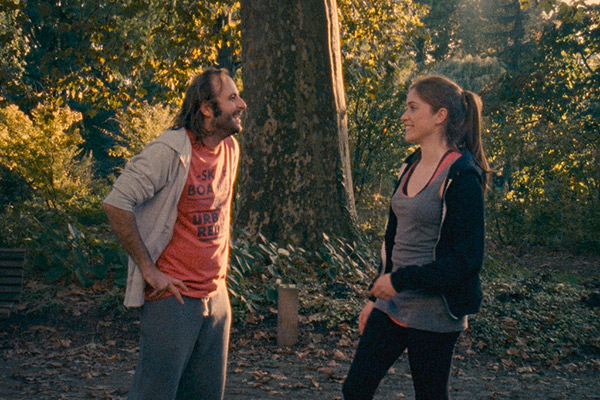
2 Autumns, 3 Winters
A quintessential example of mélancomédie, the micro-genre of choice among a certain strain of up-and-coming French filmmaker, Betbeder’s film is structured in roughly 40 brief chapters that explore the ups and downs of thirtysomething coupledom in full existential crisis mode. It sets out from a boy-meets-girl, boy-loses-girl, boy-saves-girl-from-muggers scenario whose protagonist is Arman, a sad-sack, slobbish underachiever with an art-school degree engagingly played by Vincent Macaigne. The film’s loose, idiosyncratic format interweaves a succession of confessional monologues and musings to camera (interpolated with clips from films ranging from Eugène Green to Judd Apatow to The Salamander to Night of the Living Dead) with fully fleshed-out dramatic scenes that detail the misadventures of Arman, his girl (Maud Wyler), and his art-school friend, who suffers his own romantic travails before ending up in the hospital. There are also elements of the fantastique, as in Nights with Theodore, and while 2 Autumns, 3 Winters appears to be a less singular film, it is in fact equally singular in an altogether different, endearingly shaggy register.
In French film circles ACID has found a niche and a raison d’être as a clearinghouse and support structure for fringe filmmakers, not to mention a breeding ground for new talent. As for soon-to-break-out talents, I’m betting on Betbeder.



